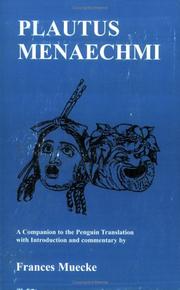
Plautus is sometimes accused of teaching the public indifference and mockery of the gods. If the gods supported a bad leader, the people should too. State religion also served as a political tool. They were worshipped but also stood as a national symbol. Tolliver tells us that the gods were not exactly like the gods worshipped today. These gods were an important part of the Romans' lives in Plautus’ time - people were supposed to worship them. Tolliver talks about the state gods of Rome and what their importance was in the Theatre of Plautus. They are usually based on the works of the Greek playwrights. Plautus' comedies are mostly adaptations of Greek plays for Roman people. His studies led to his plays being shown. He learned about Greek drama – particularly the New Comedy of Menander – in his free time. He then is said to have worked as someone who worked with his hands. He started something, but he was not successful. Tradition also says that after some time, he made enough money to start working in the shipping business. He called himself "Macchius" (a clownish character in popular farces), and "Plautus" (a term meaning "flat-footed"). People noticed that he was a talented actor.

This might be when he started to love the theatre.
.jpg)
When Plautus was young, he built stages for plays. Little is known about Plautus' early life.


 0 kommentar(er)
0 kommentar(er)
